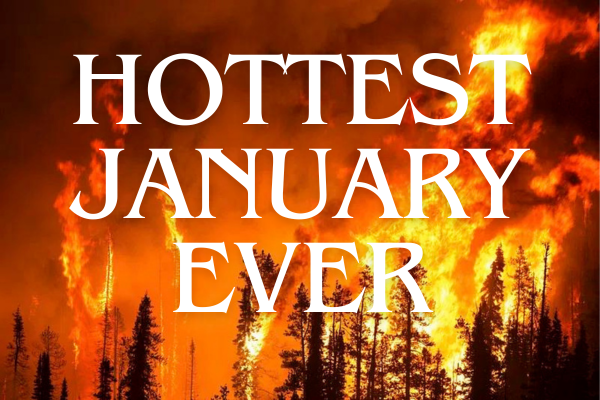The world just experienced its hottest January on record, carrying forward the exceptional heat fuelled by climate change, the European Union’s Copernicus Climate Change Service (C3S) has said. The latest data surpassed the previous warmest January, which was in 2020.
Since June last year, every month has been the world’s hottest on record, compared with the corresponding month in previous years.
“Not only is it the warmest January on record but we have also just experienced a 12-month period of more than 1.5 degrees above the pre-industrial reference period,” C3S deputy director Samantha Burgess said.
2023 was the hottest year since 1850, Burgess sounding the alarm said that there was an urgent need for rapid reduction in greenhouse gas emission.
US scientists have said that there is one-in-three chance that 2024 could outdo 2023’s record heat, and a staggering 99% probability of it ranking among the top five warmest years.
As the El Nino phenomenon shows signs of weakening, we could potentially see a shift to the cooler La Nina phase. However, even with this cooling pattern, January’s global sea surface temperatures were the highest ever recorded for the month, underscoring the depth of the crisis.
Countries agreed in the 2015 Paris Agreement to try to prevent global warming surpassing 1.5 degrees Celsius, to avoid it unleashing more severe and irreversible consequences.
Despite exceeding 1.5 degree in a 12-month period, the world has not yet breached the Paris Agreement target, which refers to an average global temperature over decades.
Scientists have said that the goal can no longer realistically be met, but have urged governments to act faster to cut carbon dioxide emissions to limit overshooting the target – and the deadly heat, drought and rising seas that this would inflict on people and ecosystems – as much as possible.
The impacts of climate change would continue to accelerate, with heatwaves, droughts, wildfires and floods likely to rise, scientists have warned. And poorer countries would be the ones hit the hardest.
At six feet and over, cool, calm and always collected. Never a hair out of place. He is the high priest of editorial facts, grammar is his baby and headlines are meat on the bone. Loves samosas and cricket, tracks Twitter and when in his cups, nothing better than Jagjit Singh’s ghazals.





